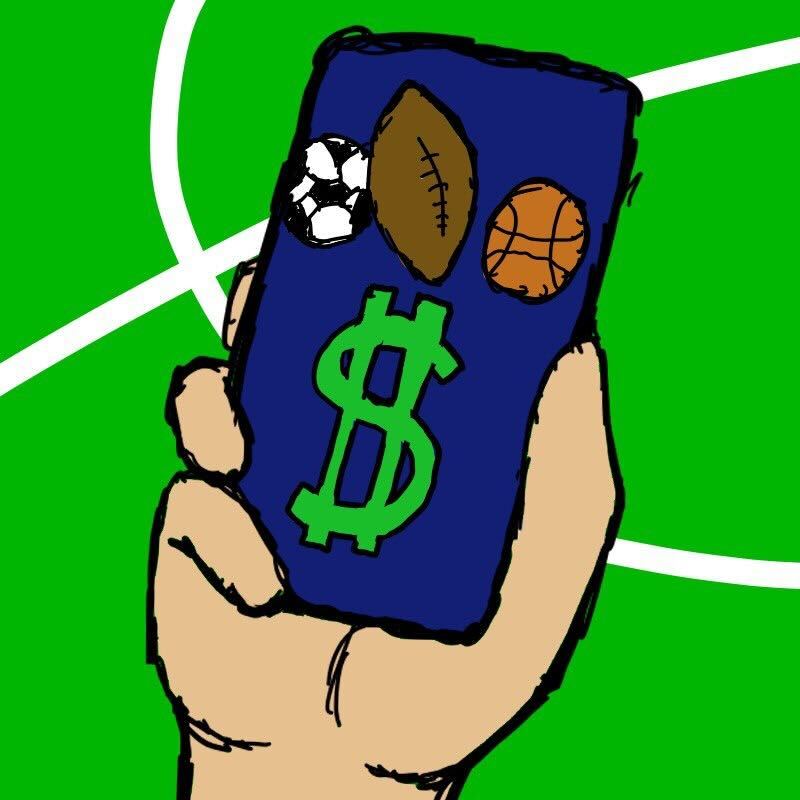Ahh, sports season. A time where you can sit back nearly every day of the week with some buffalo chicken dip, a cold beer and good friends. You can turn on a Steelers game and listen to the crowd chant “fire Matt Canada.” You can switch to the baseball World Series and watch the Rangers and the Diamondbacks face off head to head. Or, you can easily turn to some hockey games and watch the players beat one another up, or maybe even switch to some basketball, if watching egregiously tall men and women run back and forth on a tiny court is your thing. And whether or not you are enjoying these games with some spicy chicken wings or one of the last cheeseburgers you’ll cook on the grill in 2023, one thing is for certain — there will be the urge to bet your hard earned money on one of these games.
Sports gambling advertisements are getting out of hand across nearly every sport in nearly every country with large fanbases. In Australia, a study found that $152 million USD was spent on gambling advertisements between May 2022 and April 2023. And in the English Premier League, fans were disappointed by the amount of gambling ads present during Newcastle games, where midfielder Sandro Tonali is incredibly open about his dangerous gambling habits. Acknowledgment of this increase in sports betting advertisements has reached the States too. Back in May, a group working towards banning these kinds of ads found that nearly 9 minutes of advertising time was dedicated to sports betting apps per Toronto Maple Leafs game. In a recent Buffalo News column, Dan Herbeck writes about the $16 billion dollar New York industry and its addictive effects to Buffalo fans.
Jack Todd for the Montreal Gazette said it best:
“For some, [gambling is] a harmless pastime but for too many others, it’s an addiction that destroys individuals and families,” Todd said.
Having a gambling addiction can pose a real threat to people’s livelihoods. Compulsive gambling, or gambling disorder, is the “uncontrollable urge” to gamble, despite possible or present consequences. Gambling stimulates the brain’s reward system and ultimately can end up causing addiction similar to that of drugs and alcohol. While not as toxic or life-threatening as physical substances may be, gambling poses a real threat. Often, those with intense gambling addictions dip into their savings, leaving themselves in debt and throwing away money to chase a win. In even more dire situations, people with gambling addictions may even turn to robbery or theft to supply their habits.
With the visible increase in the amount of sports betting advertisements, those with gambling addictions, or those with impressionable personalities, are the most vulnerable. These ads pose a real threat to the money and livelihood of many individuals. It is easy to see how being inundated with advertisements calling on you to gamble your money away could be triggering to those who struggle with compulsive gambling, especially when these applications incentivize play by throwing in free money when you sign up or invest a small amount.
In order to enter a real life casino, you must be 21 to play and gamble. However, with the influx of online betting platforms, it is possible for those under the age of 21 to participate. Some as young as middle schoolers are illegally partaking in the pastime and developing addictions early on, and therefore creating more demand for these betting apps.
It is irresponsible to advertise so heavily to audiences that may have addictions. This is not the same as an advertisement for a drink to an alcoholic — these betting sites are actively recruiting new players with incentives and QR codes directly on the screen. It makes it all the more possible for people to go down a slippery slope and get themselves or their loved ones in serious financial or legal trouble. What once started as a fun night with friends, gathered around the television watching the Steelers somehow pull out another win, could end in relapse and poor judgment choices all around.


